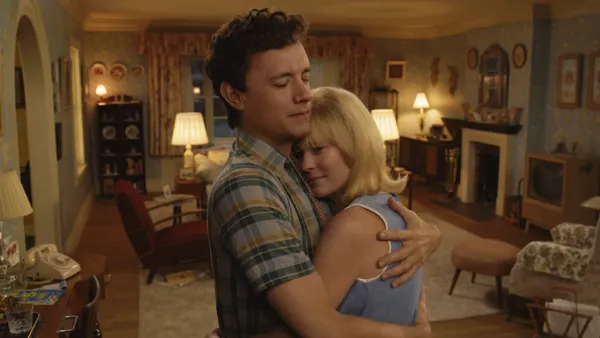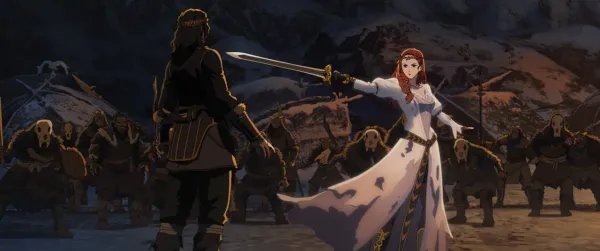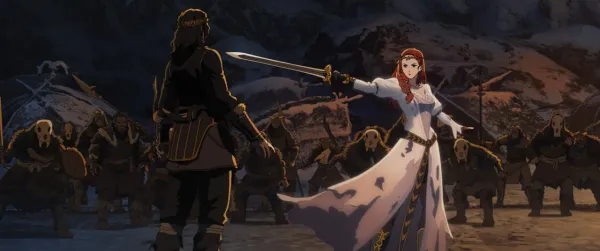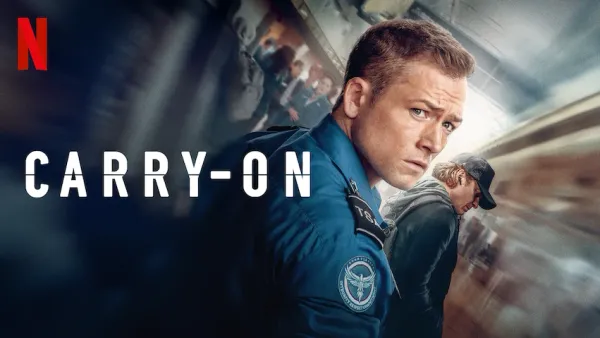The Outer Worlds has dated mechanics, but stellar writing
Welcome to the future, where corporations own not just you, but entire colonies and planets as well.
Seventy years ago the frontier transport ship The Hope went missing and with it some fifty thousand settlers looking to start new lives on Terra 2. Believed lost for good, the collective of companies, known simply as The Board, wrote the ship off as a tax deduction and went about their business. Time passed, and The Hope was lost from memory and into folklore.
Until one day, when a rogue scientist and one man Space-Antifa Phineas Wells discovers The Hope drifting in space. The Board has known of its existence all along and has chosen to leave tens of thousands of settlers in permanent stasis for the sake of the bottom line. Knowing that time is of the essence, Wells breaks out a single settler – the player – and sends them off to Terra 2 with the mission to save the new frontier before it’s too late.
Will you become the new hope of a socialist and fair new society, or join hands with capitalist greed for easy profit at the expense of others?
The Outer Worlds is essentially a mix of Douglas Adams books, Firefly, and Fallout with one major caveat – it’s nowhere near as charming as any of them, even when it captures the spirit of the things it tries so hard to emulate.
This isn’t necessarily a bad thing, and The Outer Worlds is definitely a well-written, fun, and captivating experience. But because it takes its inspiration from so many different places, the big picture feels needlessly spread thin. Consider the beginning of the game; you’re traveling with a hardened preacher with a mysterious criminal past and a heart of gold, who has at some point in his life served the great Big Bad of the game.
Alongside him is an easily excitable, yet timid young female engineer who speaks with a quasi-southern twang. The lead character is referred to specifically and only as Captain (or Cap), and your home is an old, converted transport ship that is in such poor condition it often becomes the butt of the joke.
This was all really great eighteen years ago when Firefly debuted, and those characters were beloved because of Joss Whedon’s snappy dialog and the game performances by a cast of great character actors. In theory, a lot of the same works here as well. The engineer, Parvati, is one of the funniest and most charming characters in recent years, and her story is by far the most well-realized of the crew.
Vicar Max has the strongest character arc, but his exposition-heavy dialog does little to endear him one way or the other. There are three more characters that can join the party, but I found almost never use them in the game. One of them I didn’t even realize was a potential party member until much later, and by the time her mandated personal quests came to an end, I was left with a severe feeling of “that’s it?”
This same erratic standard applies to the mission design. On one hand, you get an impossibly charming quest to help a crew member find true love that takes you not just across the galaxy but brings up discussions about the very nature of love and romance on both an emotional and physical level that you just don’t see in games. There’s a genuine investment in seeing the story turn out well, and it’s such a pleasure to find characters that are written without them becoming trophies for the player’s personal conquests.
But then, on the other hand, another character’s mission is nothing more than a solitary fetch quest in a single location that looks and feels like a discarded plot line to something bigger. Another sees the player trying psychedelics to help a friend come to terms with their emotional trauma, and it’s a potentially brilliant sequence to include, one that could discuss the very nature of who we are and how much of it is defined by the chemical processes in our head. Instead, it’s a short scene, treated mostly as a joke, where the nuanced dialog gives way to cheap melodrama.
This sounds like a harsher judgment than it actually is, but that’s only because The Outer Worlds has the capacity for true greatness, and it is often underutilized.
When the game works, it has very few equals. There’s a story that mixes George Orwell with a Harry Harrison-style underground smuggling operation bogged down in bureaucracy, where the brains of the operation are not just paranoid about her work, but the entire galaxy at large. Another sees you investigating a tuna cannery going out of business on a planet with no aquatic wildlife at all.
A merchant ship in orbit around an asteroid belt brings to mind neon-lit alleyways in Tokyo, while watching the sunset on an alien landscape with a swift galaxy rise on the horizon is nothing short of breathtaking. Some of my fondest moments in the game were spent wandering the galactic outback, marveling at the peerless design of a galaxy that would make Carl Sagan blush. Where the story and mission design might struggle at times, the game excels in every department when it comes to setting and mood.
Placing a heavy emphasis on the importance of idealistic values like social democracy and justice, the story itself is familiar to anyone who has picked up a sci-fi book in the last half-century. This is a future where corporations don’t just own the land; they own the workers from the day they’re born. The broad satire takes swipes at the increasingly disturbing trend of renaming the same jobs to sound more impressive to avoid giving workers actual raises.
While the game milks this heavily in the first half of the story, once the topics shift to much heavier issues like worker rights and moral relativism in conjunction with a working society, the emphasis becomes much more shallow. This is understandable, even when it’s disappointing.
A big-budget release needs to find a large audience, and a large audience isn’t going to sit down for thirty hours to discuss the ethical implications of class division. Most won’t even sit down for twenty minutes to enjoy a brilliant comedy about ethics, as we’ve seen with The Good Place. But at the same time, the fact that these topics are even hinted at, let alone brought up in a major release like this, is such a massive leap in the right direction that it deserves nothing but praise.
The game is incredibly accessible as well. Designed to work without color information from the ground up, meaning that color information is redundant with other indicators, it makes great strides in both mechanics and content to open the gates for an entirely new population interested in gaming. The difficulty levels include the traditional settings like normal and hard, as well as a supernova difficulty where your companions can lose their lives for good in combat, but the game also ships with a mode that emphasizes story for players not interested, or that good with combat mechanics.
It’s a wonderful inclusion and something that makes the game much easier to recommend to fans of sci-fi that otherwise wouldn’t be able to enjoy what The Outer Worlds has to offer. It doesn’t remove combat entirely, but it drops the enemy’s health extremely low and amps up the damage the player does with their weapons.
In the future, it would be interesting to see a developer explore the possibility of an entirely combat-free difficulty level, but in what is ostensibly an action game with heavy RPG elements, it’s understandable that such a thing doesn’t exist. The actual gameplay is mostly centered around dialog-heavy sequences and party management, with exploration and looting reserved for mostly transitions between towns and points of interest, so this kind of future doesn’t necessarily have to be far off for those that want it.
Personally, I enjoyed the combat and felt that Obsidian has made major improvements to both melee and long-range battles since Fallout: New Vegas. Looting itself goes from rewarding to diminishing returns very quickly.
The game is generous with what you find, but once every single crate yields a ton of items at every turn, the game becomes too inventory-management-heavy than I’d like. Around halfway through the story, I just stopped picking up items altogether on normal difficulty. It remains to be seen how much a supernova would change the experience.
On a far more nitpicky level, the game’s autosave system is more frustrating than it is intuitive. The few times that I actually did die in battle due to sheer carelessness, I was frustrated to find that the game had last autosaved way back further than I’d have liked. Fast travel creates an autosave, and some important transitions do too, including completing a mission, but a lot of the early gameplay is finding new locations and for a first-time experience this involves a lot of trial and error.
Forgetting to hit a manual save at any point could easily cost you anywhere from a half hour to an hour of gameplay simply because the autosave doesn’t kick in. It’s a minor complaint, but worth noting nonetheless.
Despite my complaints, The Outer Worlds is among the finest games released this year. It’s a fun adventure that kept me glued to the screen for the twenty-plus hours that the main story took to complete. I did most side-quests on the planets that I did access, although at the end I noticed there were at least two that I hadn’t even set foot on yet, and I’m eagerly anticipating a second play-through with a wildly different character.
Developer Obsidian’s previous game, Fallout: New Vegas, was celebrated for having a vast bounty of impressive single-player downloadable content released throughout the years, which gives hope that The Outer Worlds can continue much in the same way. It certainly has all the potential for a long-running series of adventures in an unexplored frontier, and I, for one, can’t wait to see more.
The Outer Worlds is out now for PC, Xbox One, and PS4.



